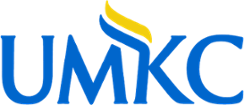The closure of campus in response to the new coronavirus world forced innovation and creativity as Bloch worked to rapidly adapt our critical processes to a fully digital workflow. It is—for the most part—working, and for many processes far better than we would have imagined.
We are seeing that the digitization often represented changes long in the planning, but absent the impetus to implement, were simply lower priorities. The reason was simple—what we had been doing was “good enough.” Now that we have made the shift in so many of our processes so quickly, our teams are finding even better ways in which we can leverage technology to serve our students, be more responsive, and build resilience into our workflows. It has exposed weaknesses in our thinking about technology and shattered assumptions that we could not move process X, Y, or Z to a fully digital workflow.
As we think about a return to campus, we want to preserve many of these innovations. Here are the things we are doing to make these digital transformations stick, and that may be helpful for your organization.
Collecting Data
I can’t stress this point enough—collecting data on the impact of process changes is critical. To the extent possible, it should be part of the conversation early on in implementing the change. I would also argue that it should not be complicated. At its core, a digitized business process should allow the business to do:
- More of something than it could before
- Something faster than it could do before
- Something more cost effectively than it could do before
Ideally, the new workflow accomplishes all three, but even one can justify the usefulness and importance of the newly digitized process. On the return to campus—or the office—there will be a natural tendency to return to the “old way of doing things.” Good data on the value of the new process to the business helps counter that tendency.
Involving More Voices
We often teach the importance of a champion in the organization who is both passionate and persistent in driving technology adoption and workflow digitization. A champion remains important even in rapid disruption. But, we have found that rapid disruption resulted in a much larger group of champions. This is a terrific thing!
Rapid brainstorming, experimentation, and distributed accountability is not—cough-cough—a common way for a university to do its business. But the organic way in which our various teams have embraced new approaches and are leading digitization changes in their workflows has been remarkable. It is flipping our way of developing digitization priorities and empowering our faculty and staff, as broadly as possible, to identify and exploit opportunities to leverage technology and remove barriers.
Culture of Forgiveness
Something we have made of point of emphasizing—and our faculty and staff have responded exceptionally well—is flexibility, adaptability, and forgiveness. Forgiveness is key. In periods of rapid change and disruption, leaders must provide a license for their teams to fail. This is particularly true when it comes to learning and implementing new technologies.
Hopefully, that failure happens quickly, and lessons learned and applied equally fast. In a sense, it is purposefully lowering performance expectations, not to accept mediocre outcomes, but rather to boost confidence in trying new approaches and new processes. Two phrases we are using around Bloch a lot now are “roll with it” and “we’ll make it work.” Fostering that spirit of adaptability, supported by leaders willing to support fast-failure and learning, will be critical to maintaining and improving newly digital workflows.
For Bloch, rapid digitization has not been without its hiccups and unforeseen challenges. But by using this time to jump-start several initiatives that were in the “it would be nice to do X, Y, and Z” category, we will hopefully make at least X and Y our new ways of working as we emerge from the pandemic, and we will be better able to serve our students and our Kansas City partners now—and in the future.
Photo by Joshua Sortino on Unsplash

